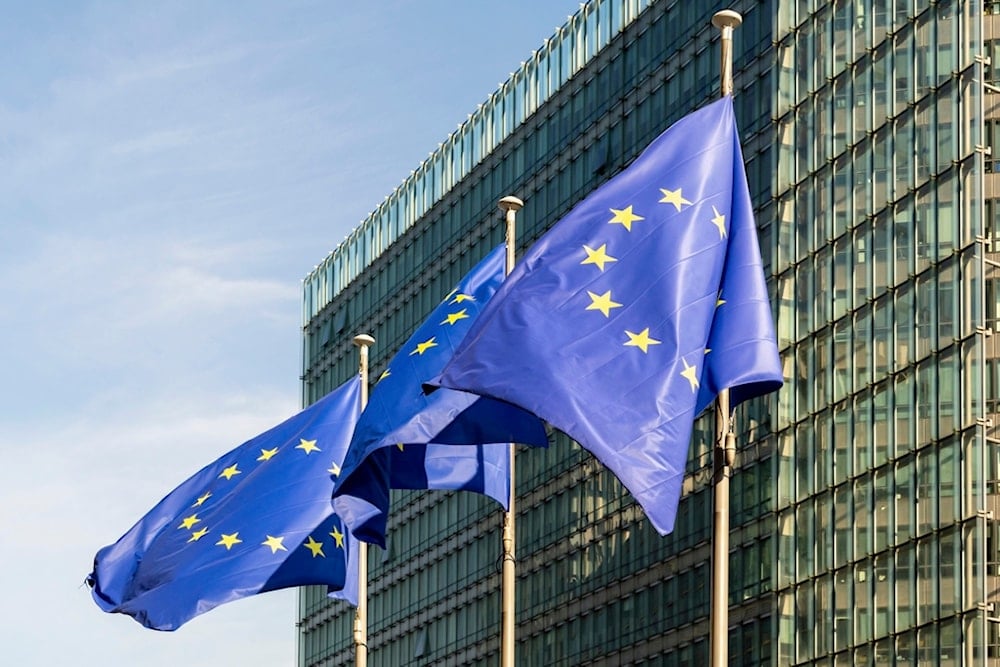EU expands sanctions on Iran over alleged support for Russia
The EU's new measures impose strict restrictions on the export, transfer, and sale of components from EU countries to Iran.
-

European Union flags flap in the wind ahead of an EU summit in Brussels, Thursday, June 27, 2024. (AP)
The European Union (EU) announced Monday an expansion of its sanctions on Iran, citing allegations of Tehran's military support for Russia in the ongoing Ukraine war.
The measures, which target Iran's drone and missile programs, as well as its use of shipping networks, come as part of the EU's broader response to what it describes as threats to European security.
The EU's new measures impose strict restrictions on the export, transfer, and sale of components from EU countries to Iran, citing concerns that these items could be used in the production of missiles and unmanned aerial vehicles (UAVs).
The sanctions also target Iran's shipping networks, banning transactions with ports and locks allegedly used to transfer UAVs and missile components to Russia.
Key facilities, such as Amirabad and Anzali ports, are now off-limits for such activities, with exceptions granted only for humanitarian emergencies or maritime safety.
Read more: Iran rejects allegations about supplying Russia with arms
The sanctions designate several entities and individuals allegedly involved in these operations. The Islamic Republic of Iran Shipping Lines (IRISL) and its director, Mohammad Reza Khiabani, are accused of facilitating military exports for Iran.
Additionally, three Russian shipping companies—MG Flot, VTS Broker, and Arapax—are alleged to have transported Iranian-made weapons and UAV components across the Caspian Sea to resupply Russian forces in Ukraine.
Instrumental Allegations
The EU's measures are based on accusations that Iran has been supplying ballistic missiles, drones, and related technology to Russia for use in Ukraine.
These claims, however, have been met with skepticism by some observers who note the absence of concrete public evidence to substantiate the allegations.
Tehran has consistently denied involvement in the Ukraine war, dismissing the accusations as politically motivated. Critics argue that the EU's sanctions align with a broader geopolitical agenda aimed at isolating Iran, rather than addressing verifiable threats.
Read more: Iran summons UK, France, Dutch envoys over missiles to Russia claims
The EU insists its actions are necessary to counter what it perceives as Iranian support for Russia's military campaign. However, the narrative of unverified allegations raises concerns about the implications for diplomatic relations and regional stability.
Critics of the EU's approach warn that these measures could further escalate tensions without fostering dialogue or de-escalation in the Ukraine conflict.

 3 Min Read
3 Min Read









